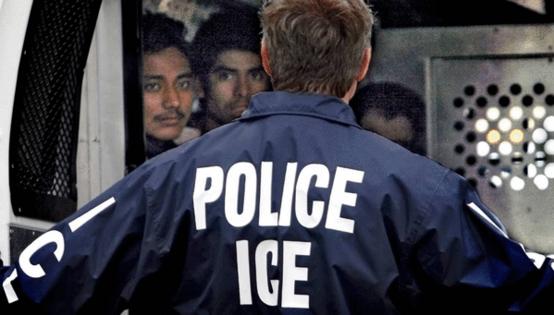ICE can't enter religious sites that sued, including Philadelphia Quakers, judge rules
Published in News & Features
PHILADELPHIA — A federal judge has paused changes to U.S. Department of Homeland Security policy that would allow immigration enforcement agents to enter houses of worship. The order affects the Quaker, Sikh, and Baptist congregations throughout the country, including Quakers in Philadelphia, affiliated with the lawsuit.
Over a dozen migrants at risk of deportation took sanctuary in Philadelphia churches during President Donald Trump’s first term, more than any other city in the country. But as part of Trump’s crackdown on undocumented immigrants, on the first day of his second term, DHS rescinded a directive that limited federal agents’ ability to conduct enforcement actions in sensitive locations such as churches, schools, and hospitals. Instead immigration enforcement agents were instructed to use common sense and discretion.
Maryland District Judge Theodore Chuang said in a memo that allowing for warrantless operations in places of worship “lacks meaningful limitations or safeguards.”
“A return to the status quo is therefore warranted until the exact contours of what is necessary to avoid unlawful infringement on religious exercise are determined later in this case,” Chuang wrote.
Quaker groups, including the Philadelphia Yearly Meeting of the Religious Society of Friends, filed the lawsuit last month challenging the change, saying that “the very threat of that enforcement deters congregants from attending services, especially members of immigrant communities.”
“Deterring worshipers from attending services chills Plaintiffs’ First Amendment rights of association,” the complaint said.
The Quakers, who were later joined by the Cooperative Baptist Fellowship and the Sikh Temple Sacramento, asked a federal judge to issue a preliminary injunction blocking the implementation of the new sensitive-locations.
Chuang instructed the groups that brought the lawsuit to provide DHS with a list of houses of worship affiliated to them to ensure no warrantless immigration enforcement actions take place there.
“For decades, the government has recognized that everyone — no matter their immigration status — should be able to attend houses of worship without fear of a warrantless government raid,” Skye Perryman, president and CEO of Democracy Forward, the legal services nonprofit representing the religious group in the case, said in a statement Monday. “Religious institutions should not have to go to court to fight for the right to worship and associate freely that is enshrined in our Constitution.”
Christie Duncan-Tessmer, general secretary of the Philadelphia Yearly Meeting, said in a statement that the ruling “returns some of us to safely holding open the doors to houses of worship to all seekers, as our constitution guarantees.”
DHS did not respond to a request for comment on Monday.
Tricia McLaughlin, the U.S. Department of Homeland Security’s assistant secretary for public affairs, previously said that allowing officers to enter sensitive locations protects Americans from threats such as gang members.
Officers would use discretion and need approval from supervisors to enter a house of worship or school, McLaughlin said. “We expect these to be extremely rare.”
In another lawsuit filed this month, religious groups asked a federal judge in D.C. to exempt their affiliated congregations from the order. Among the 27 plaintiffs in that case are the Montgomery County-based Reconstructing Judaism and the Philadelphia-based Friends General Conference.
_____
©2025 The Philadelphia Inquirer. Visit inquirer.com. Distributed by Tribune Content Agency, LLC.







Comments